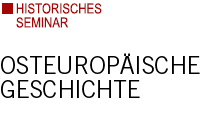Emanuel Marius Grec
Dissertationsprojekt: The Perpetrators of the Odessa Massacre: War-Crimes Trials in Postwar Romania (1944-1948)
Emanuel Marius Grec is a PhD Candidate in history at Heidelberg University, Germany. He is currently working on his dissertation titled “The Perpetrators of the Odessa Massacre: War-Crimes Trials in Postwar Romania (1944-1948)”, under the guidance of Prof. Dr. Tanja Penter. In the thesis, he examines the ways in which perpetrators and war criminals were portrayed in Romanian war crimes trials between 1944-1948. In particular, the work focuses on the clusters of defendants that were responsible for the Odessa Massacre of 1941. The research looks at how accusations against ordinary administrative staff differed from those against military personnel or from those against war criminals who were seen as fascist ideologues. The project seeks to understand the ways in which the prosecution sought to create new categories of defendants from a single event.
Unlike existing historiography, Emanuel tries to understand the phenomena of postwar justice using a bottom-up approach: how does specifically looking at the perpetrators of the Odessa Massacre change our understanding of the nature of the crimes of which the perpetrators were accused? Emanuel’s research interests include the Holocaust in Romania, nationalism, Genocide, as well as the history of the Jewish communities of Eastern Europe. His primary research field is East European history; however, he also focuses on comparative history in the Central European context.
He earned a B.A. in History from Vasile Goldiș Western University of Arad in 2013, an M.A. in Comparative History from Central European University in Budapest (2016), and an M.A. in Jewish Civilizations from the Hochschule für Jüdische Studien in Heidelberg (2019). He also obtained a fellowship from Central European University in 2014 for his MA work and a research fellowship from Paideia – The European Institute for Jewish Studies in Sweden. Additionally, he participated in over fifteen international conferences and workshops and is the recipient of two consecutive research fellowships from Ernst Ludwig Ehrlich Studienwerk (ELES) in Germany, both for his MA (until 2019) and PhD (until 2021). Emanuel’s publications include articles in peer-reviewed journals on the memory of the Holocaust in Romania, the history of violence in literature before World War II, the rise of antisemitism in interwar Romania, as well as book reviews on Holocaust works in both English and German. He is a member of the Center for Jewish Studies in Arad, Romania, since 2010.
Research interests:
- 20th-century Romanian history
- The Holocaust in Eastern Europe
- Postwar investigations of Nazi crimes and trials in Romania
- Romanian-Jewish history
- Soviet influence in Romania after 1944
- Romanian communist historiography on war crimes in Europe after WWII
CV:
Born on June 14, 1991, in Arad, Romania.
2010 - Graduated from Moise Nicoară High School, Arad, Romania.
2010 - 2013 – B.A. in History and International Relations, “Vasile Goldiș” Western University of Arad.
2014 - 2016 – M.A. in Comparative History, Central European University, Budapest.
2018 - Fellow at Paideia – The European Institute for Jewish Studies in Sweden, Stockholm.
2019 - M.A. in Jewish Civilizations – Hochschule für Jüdische Studien, Heidelberg.
From 2019 - PhD student in History, University of Heidelberg, PhD Project: “The Perpetrators of the Odessa Massacre: War-Crimes Trials in Postwar Romania (1944-1948)”, Supervisor: Prof. Dr. Tanja Penter. Funded by Ernst Ludwig Ehrlich Studienwerk, Academic scholarship and Claims Conference Saul Kagan Fellowship in Advanced Shoah Studies.

